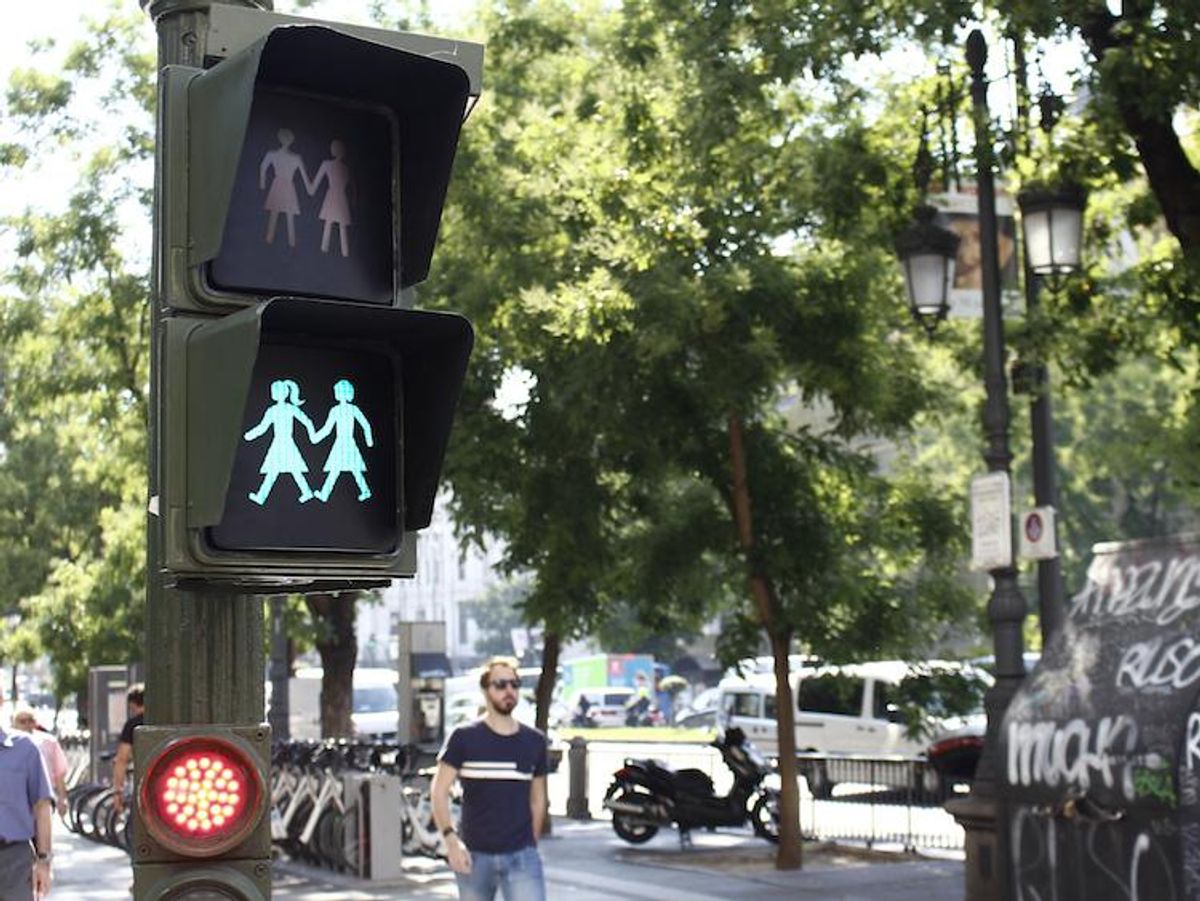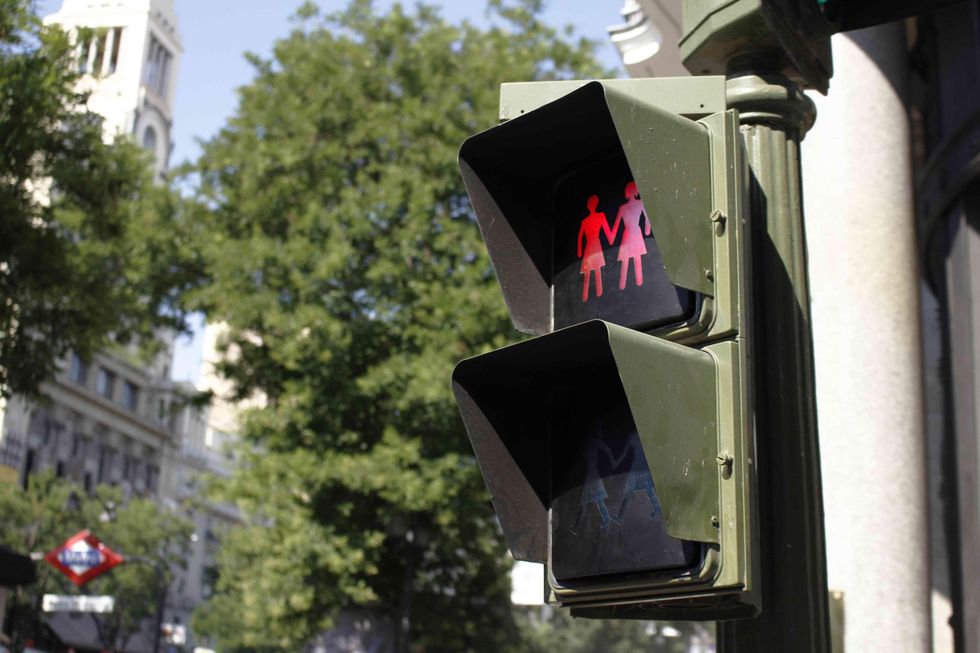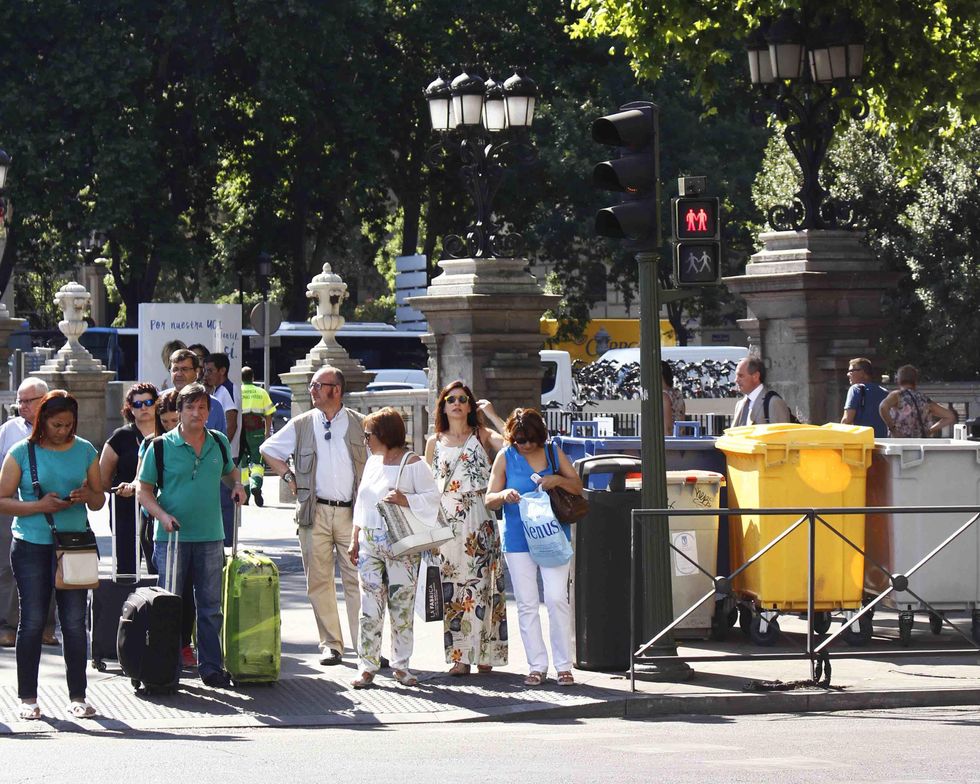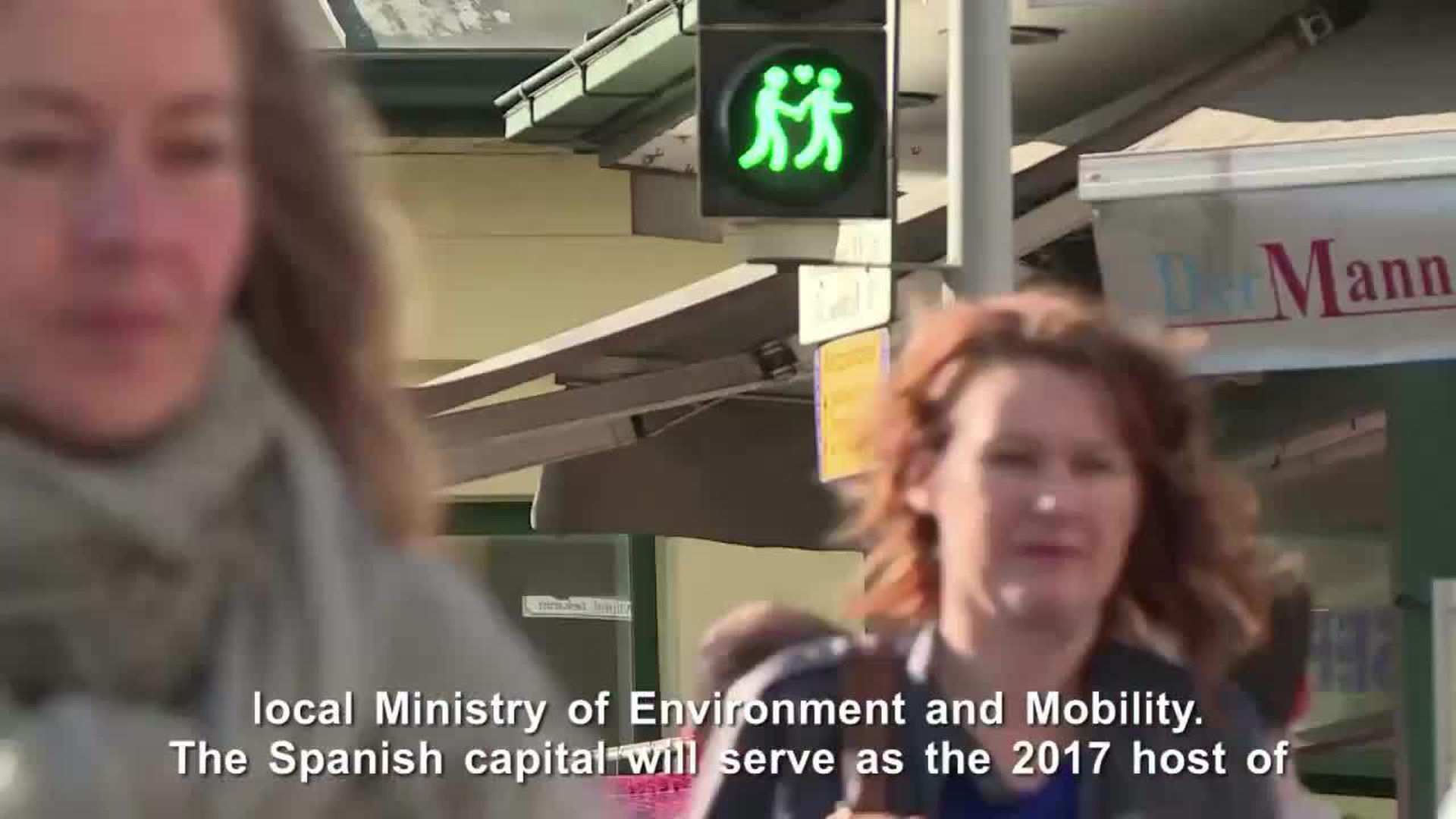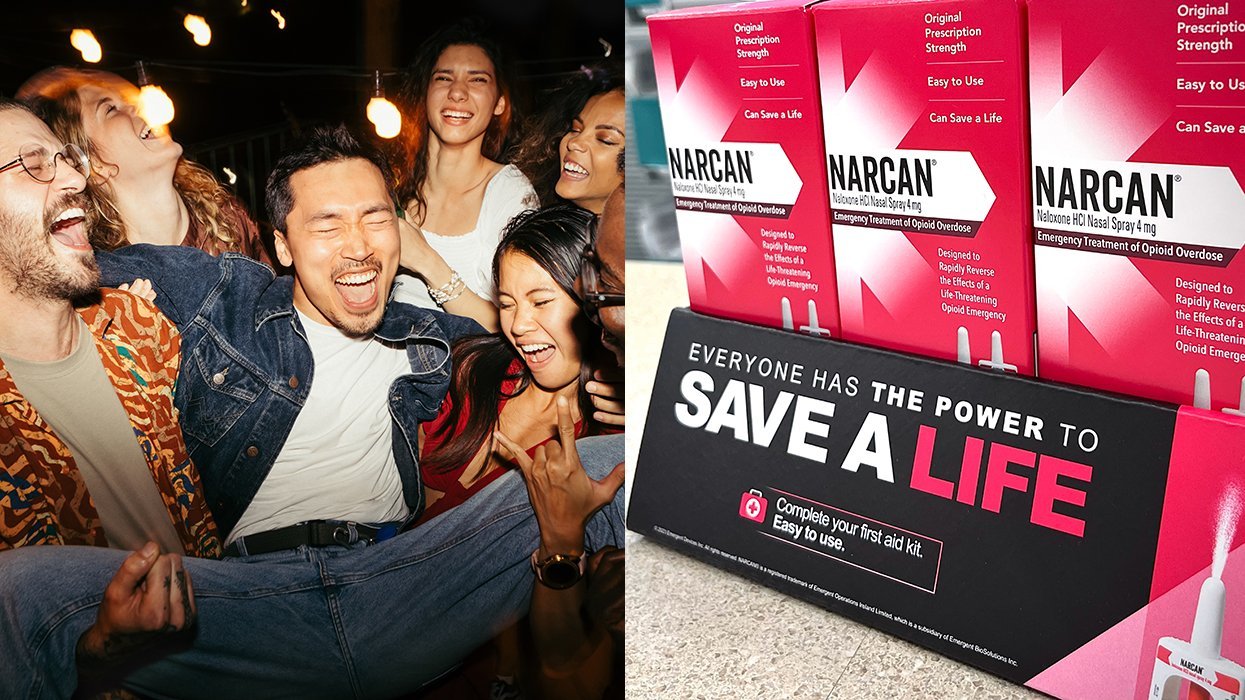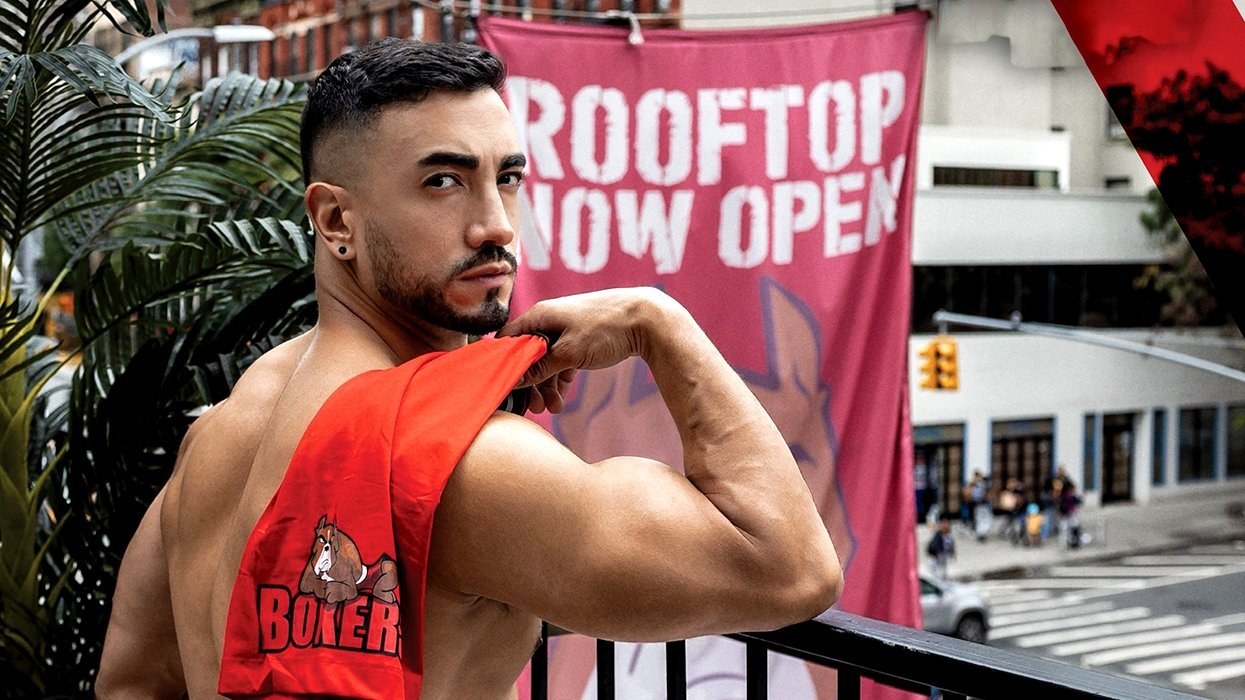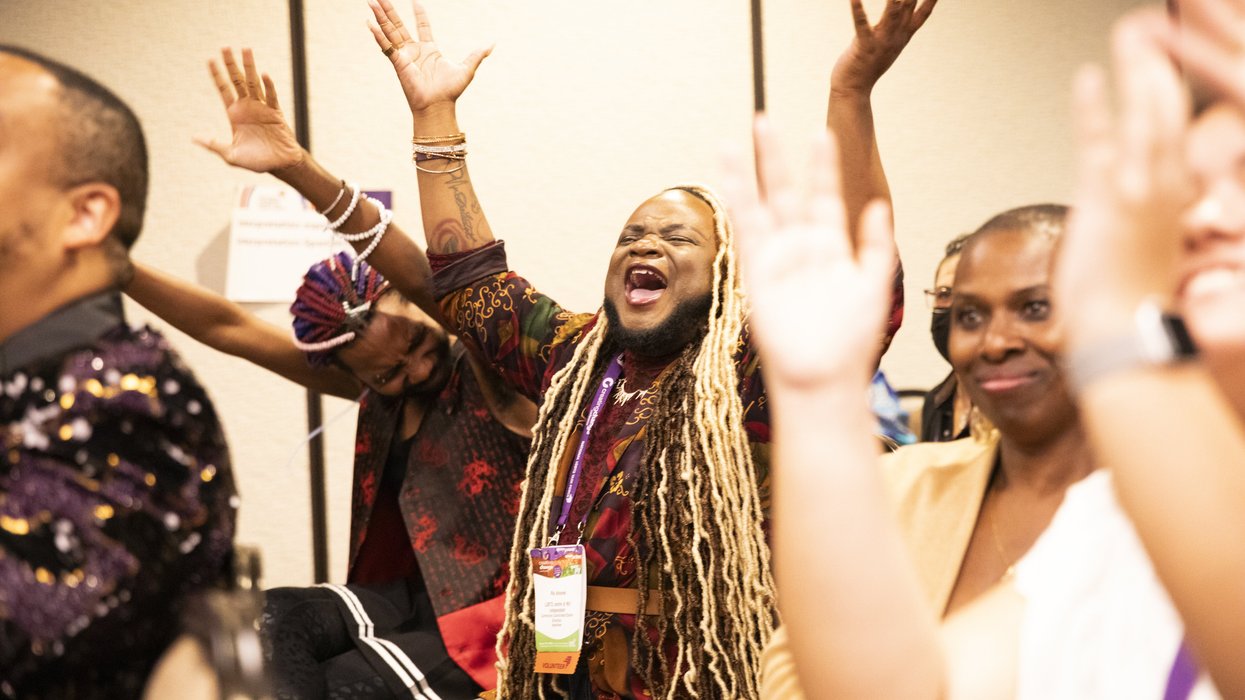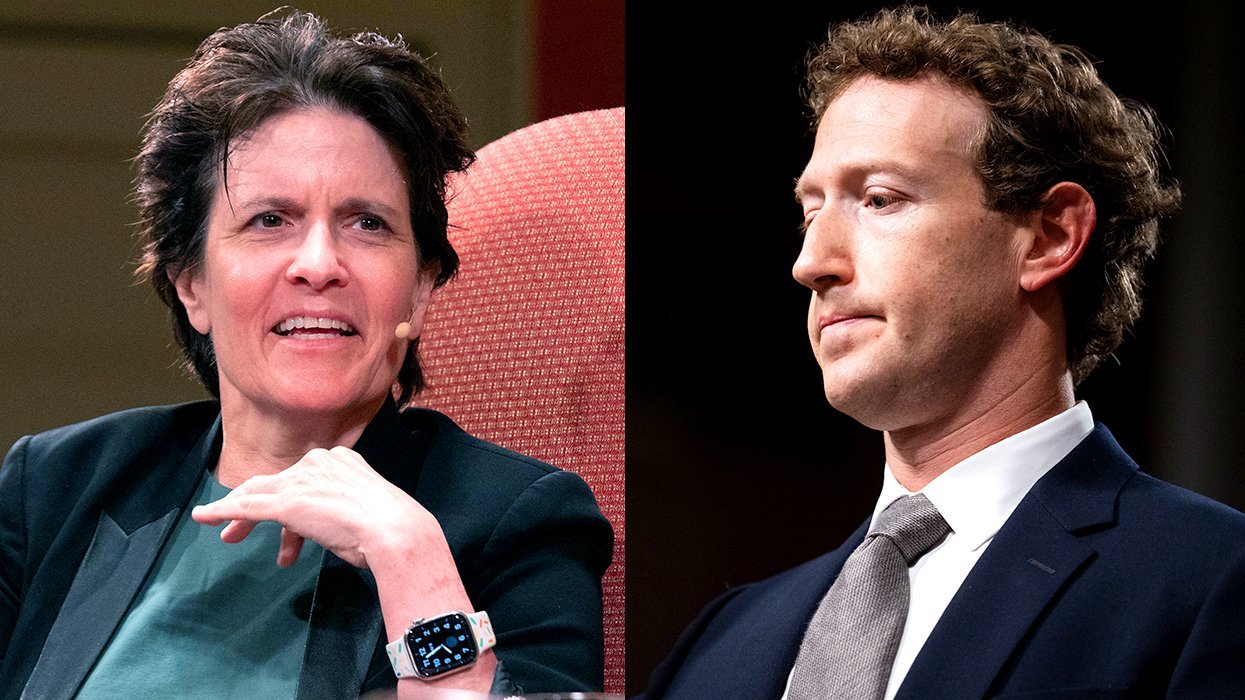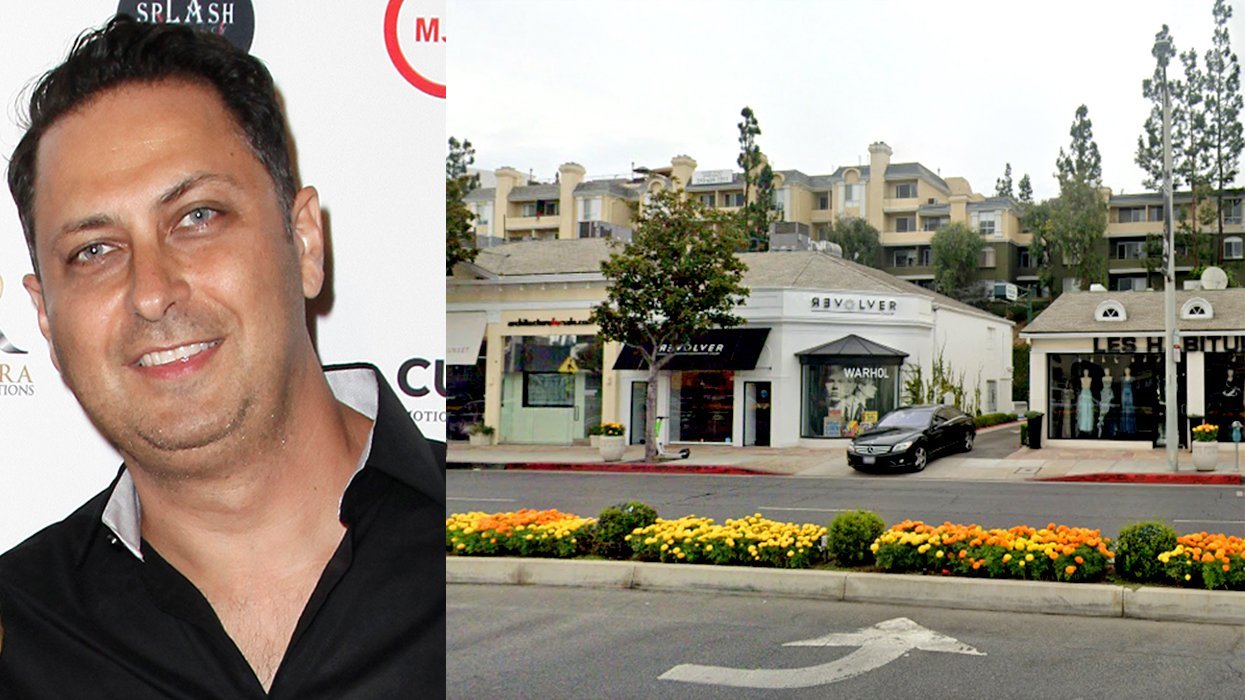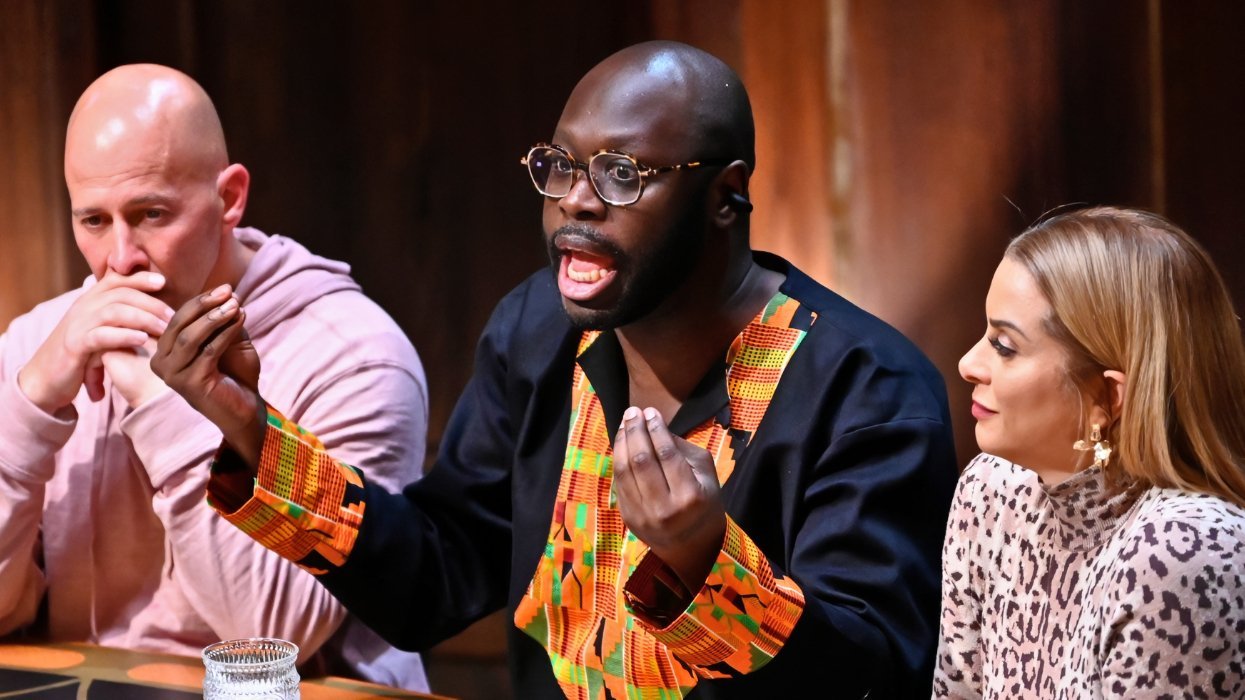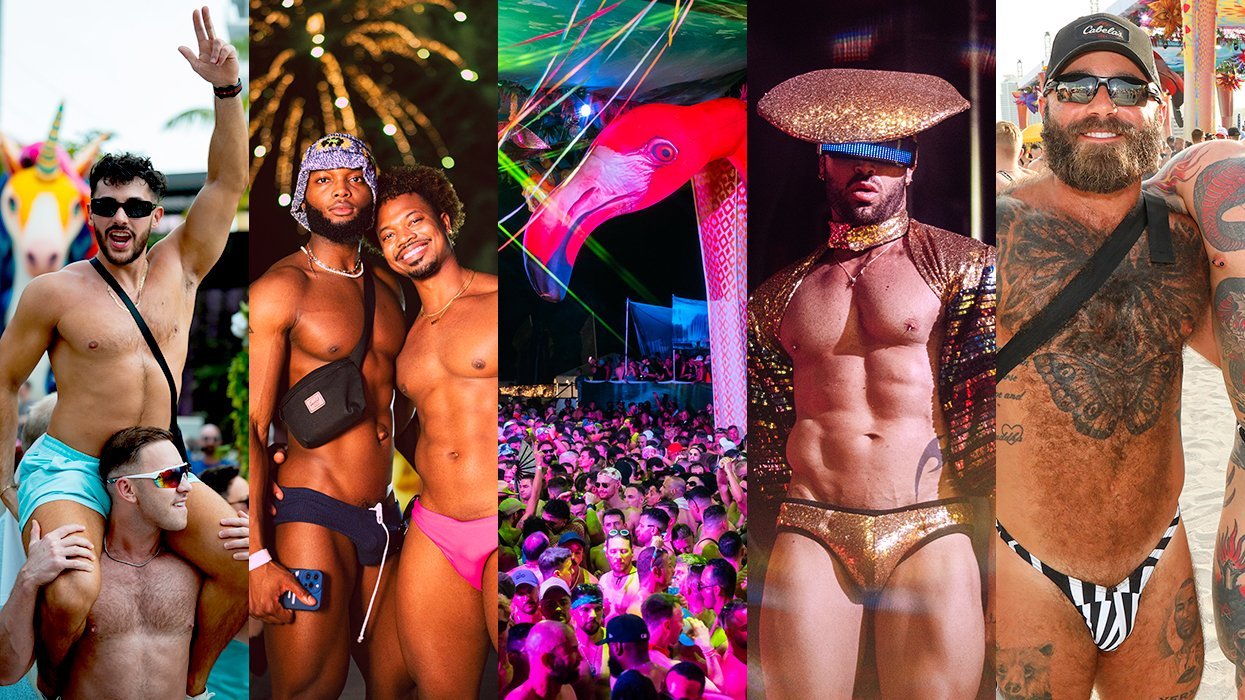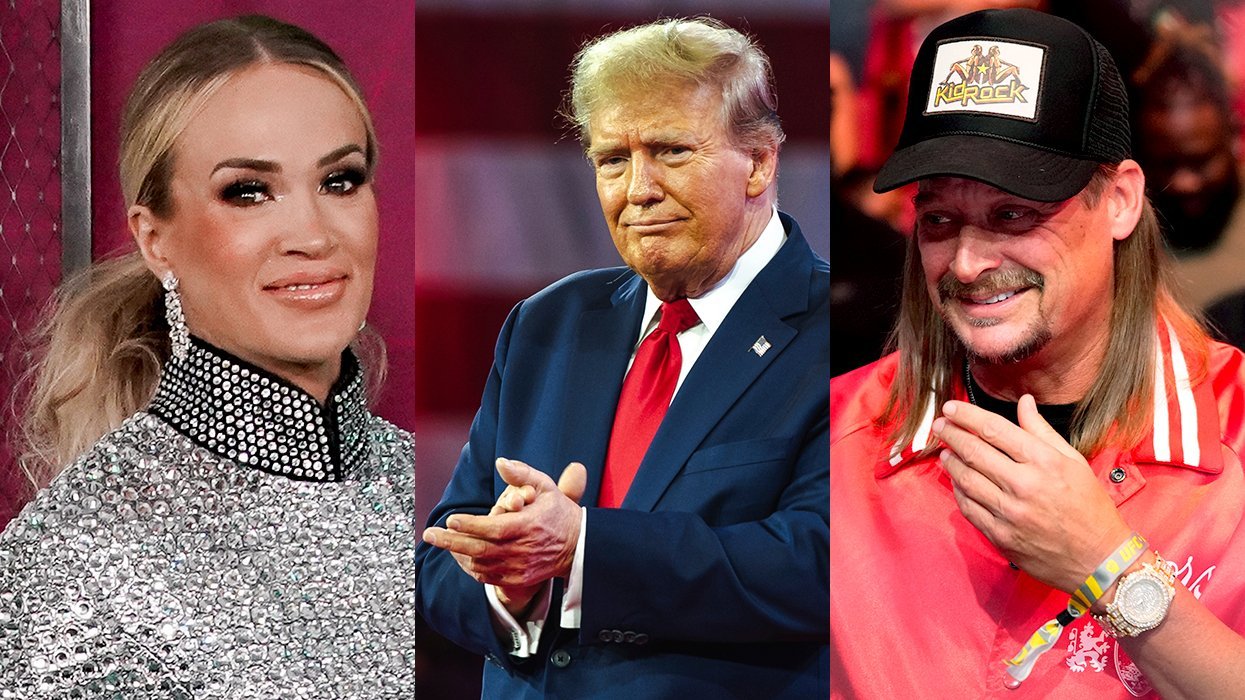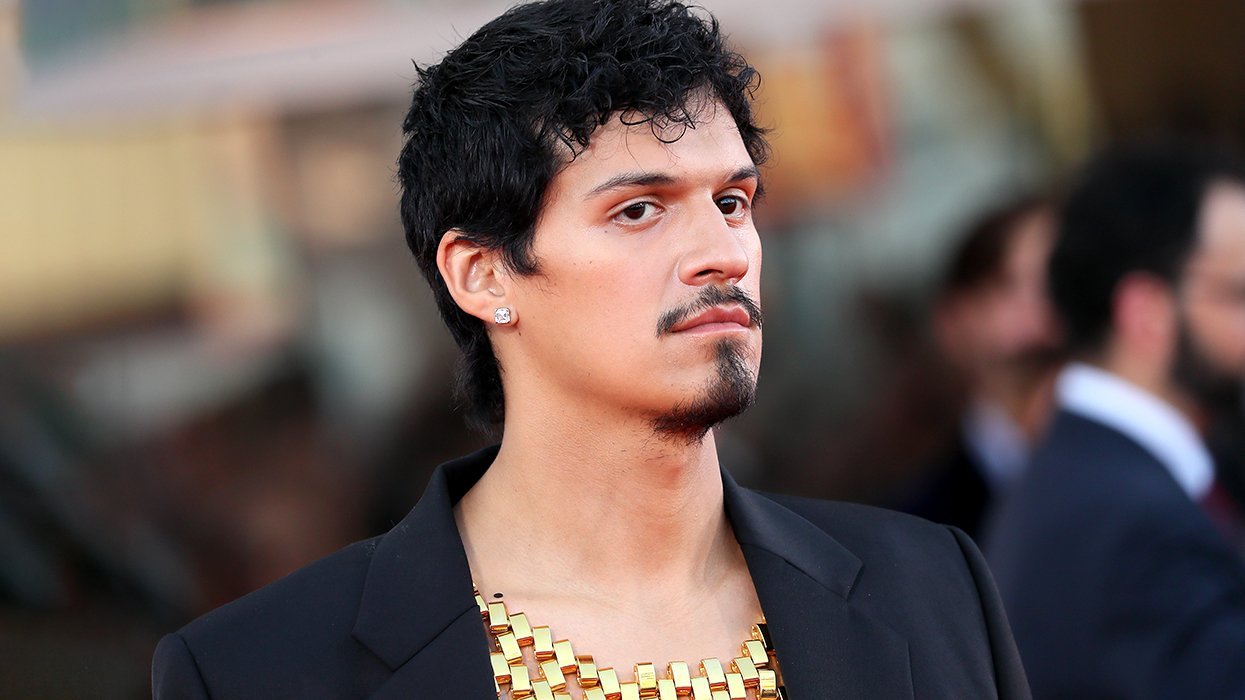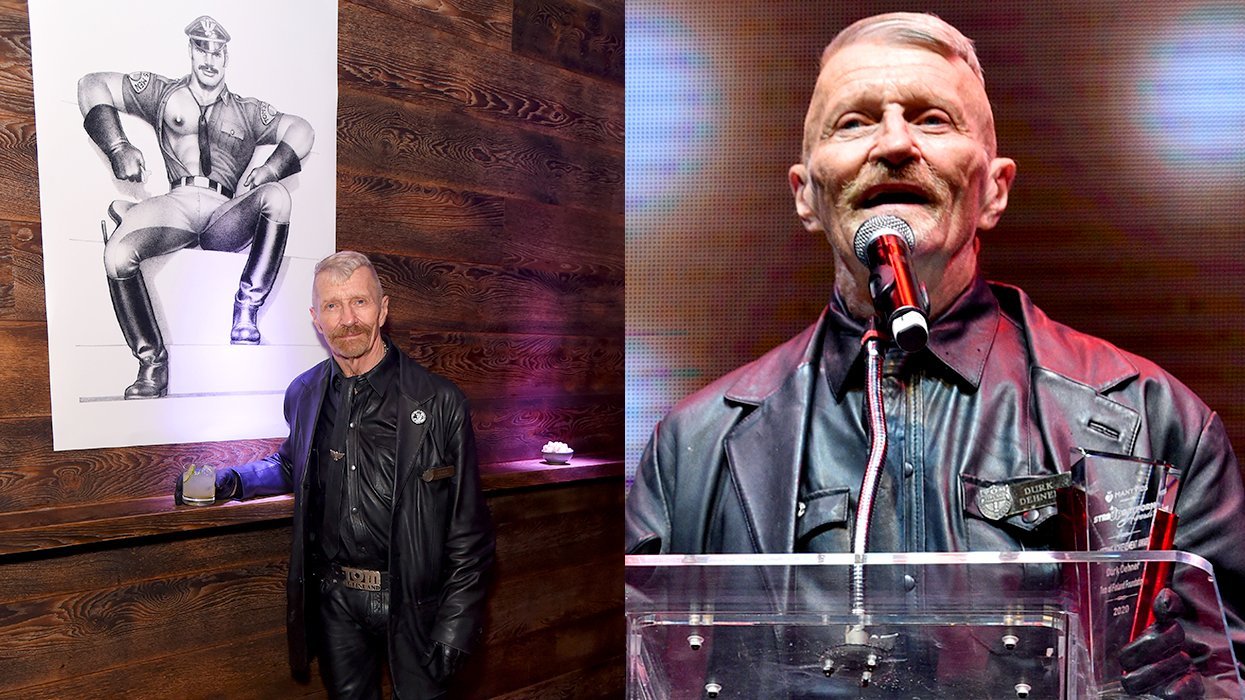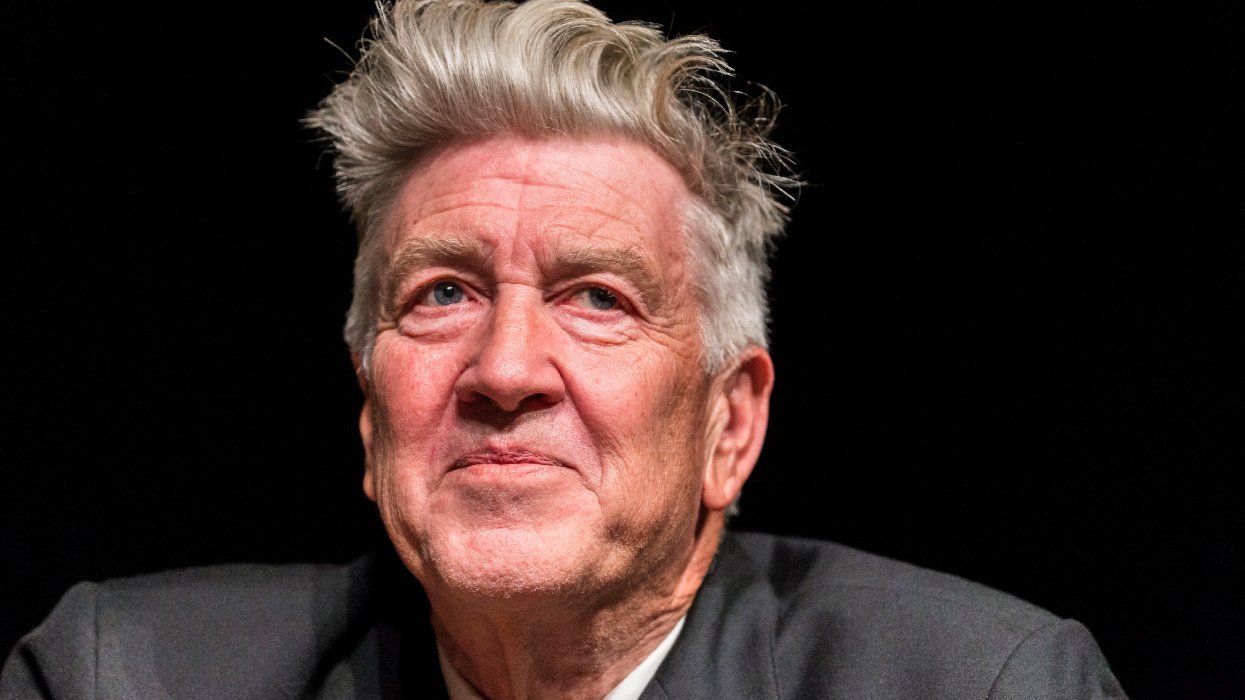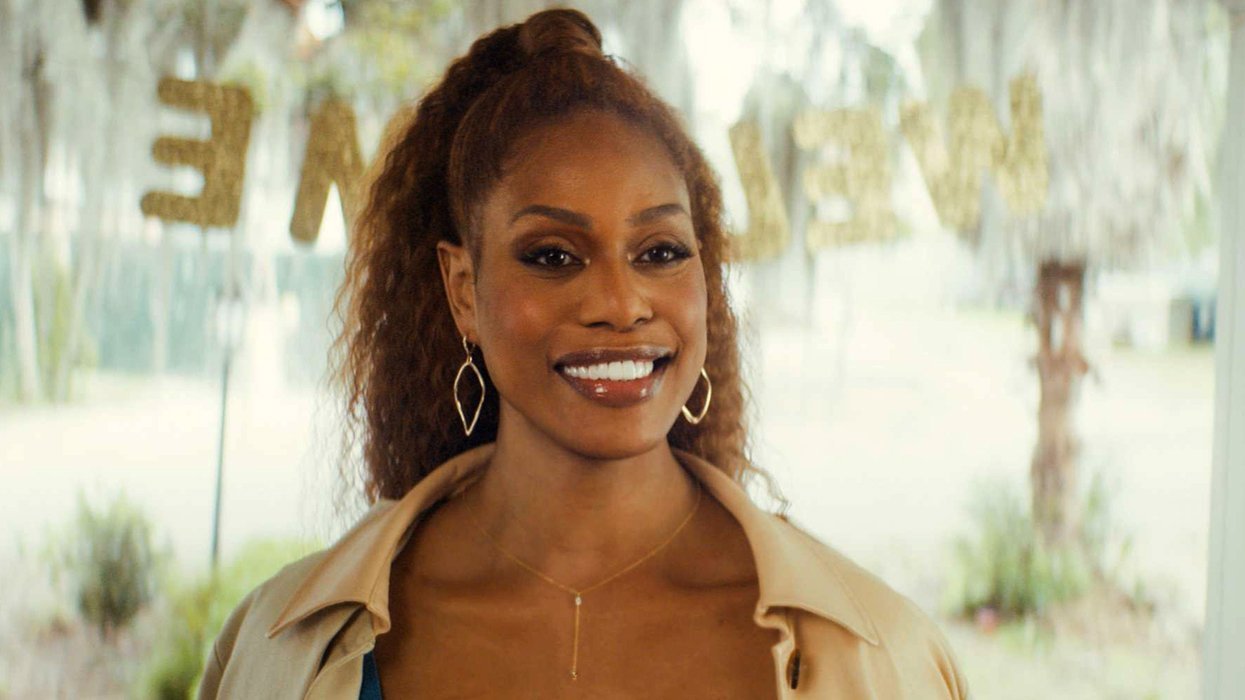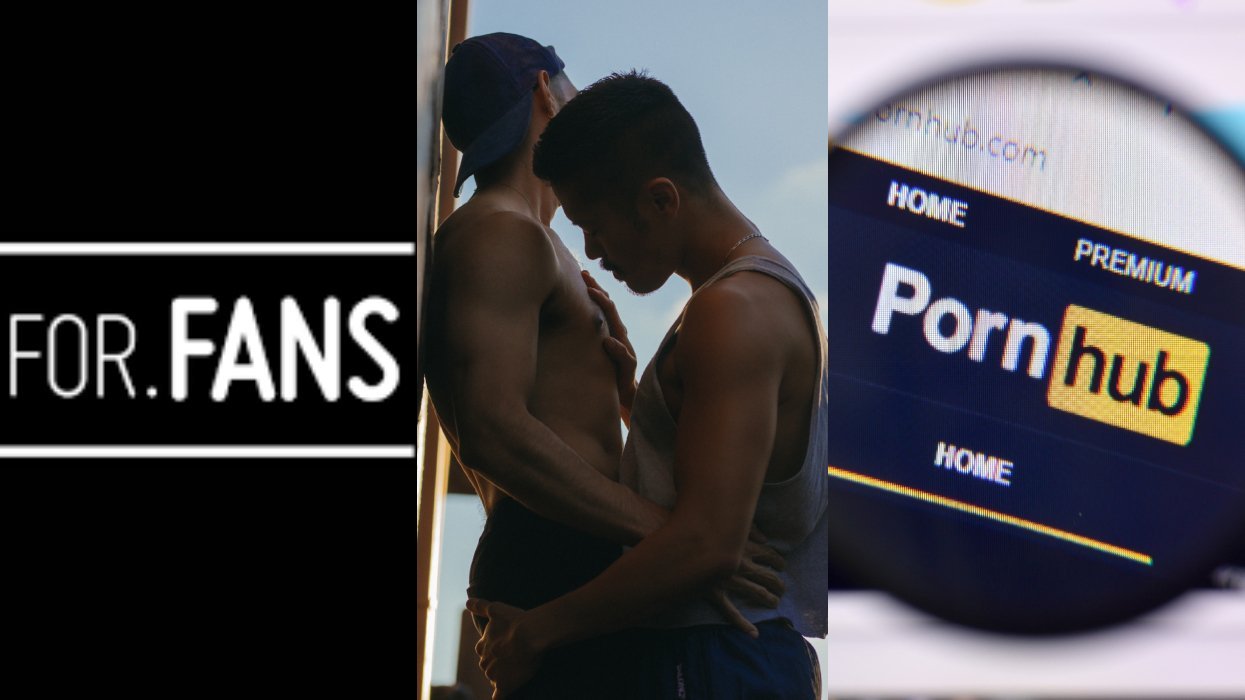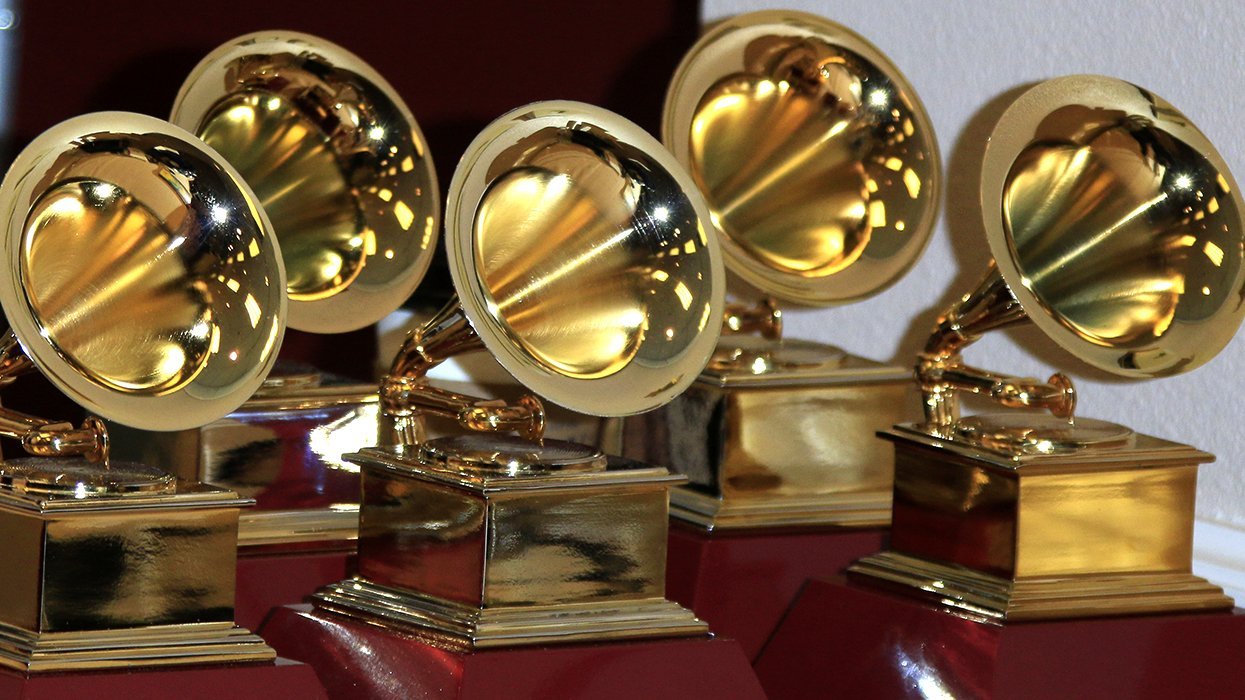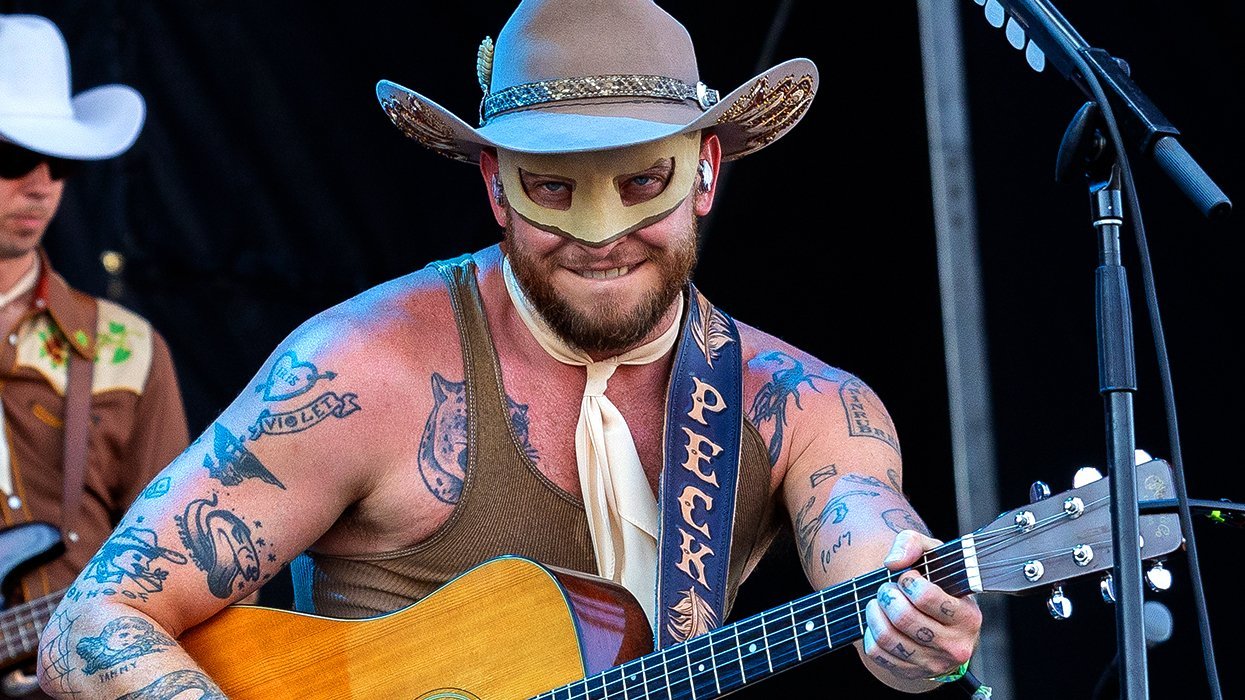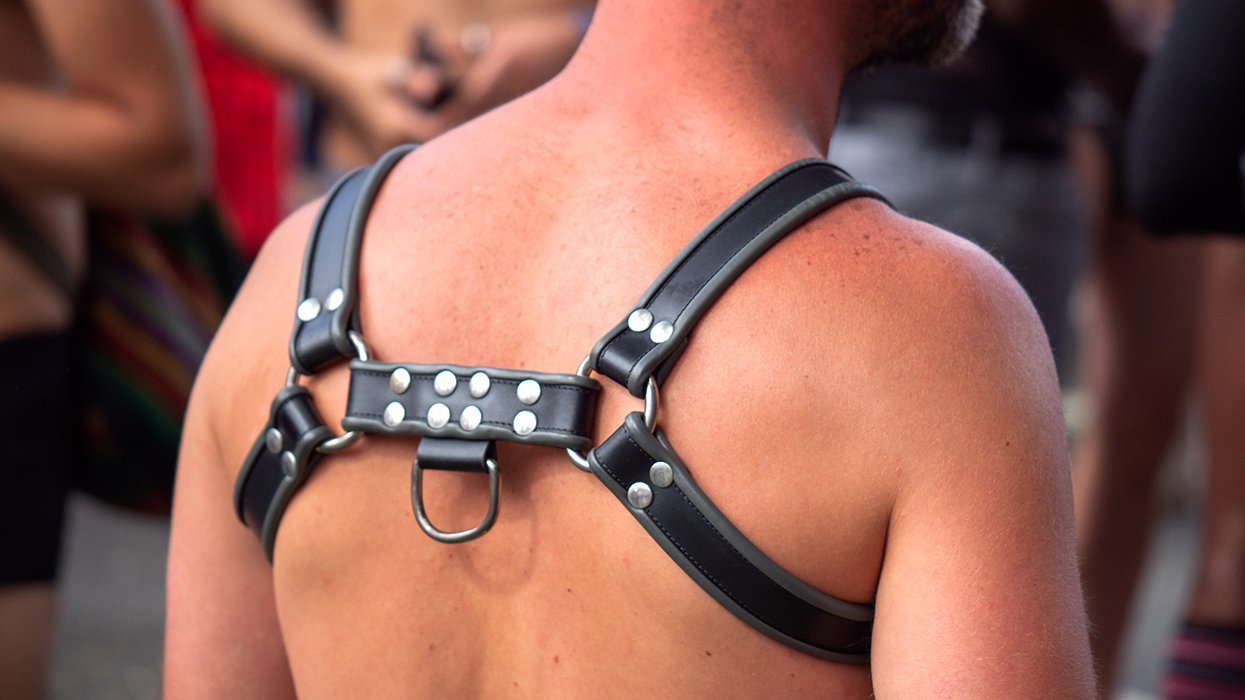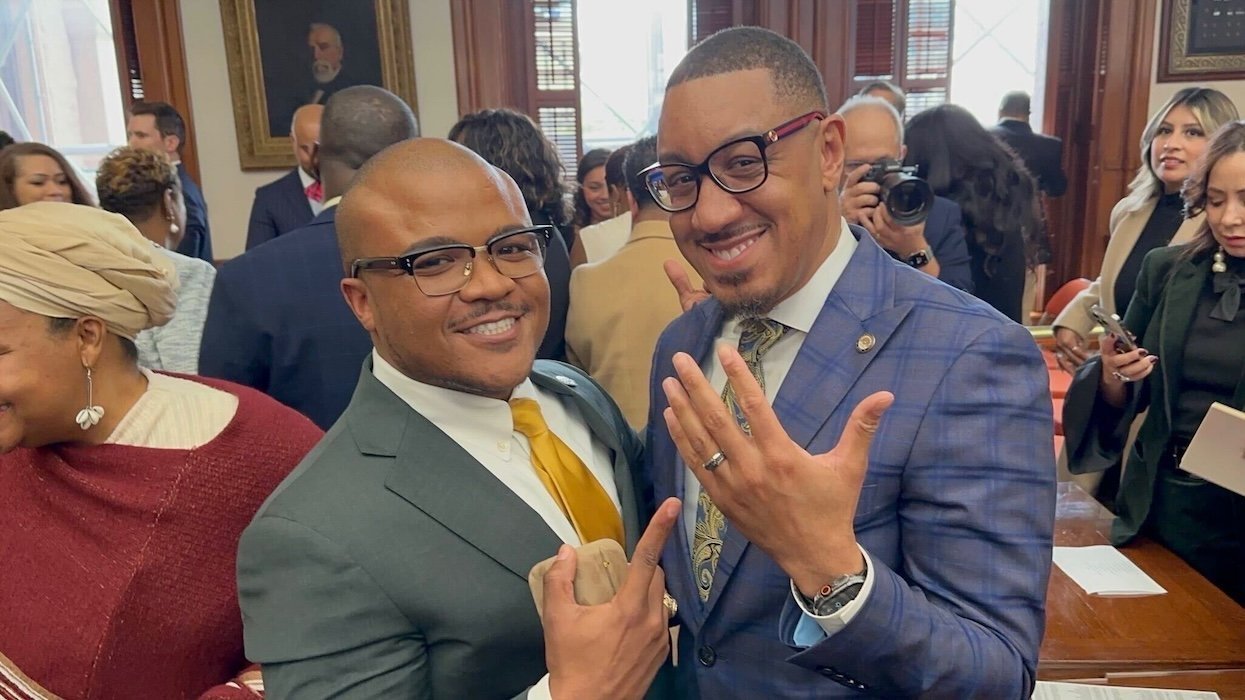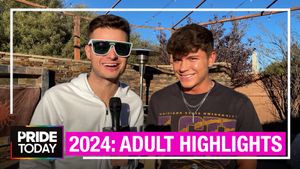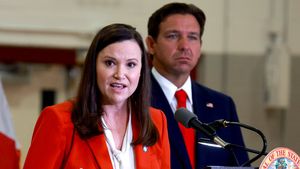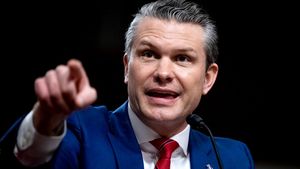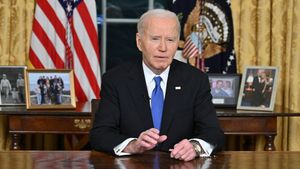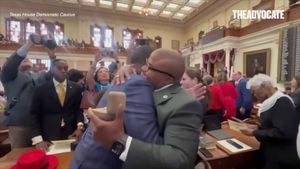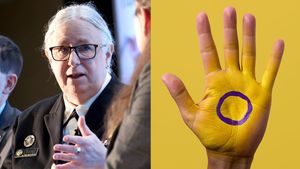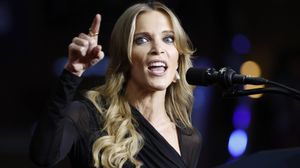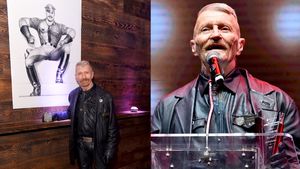Madrid just earned itself some LGBTQ street cred. Earlier this month, 288 crosswalk signs across the city got a queer makeover, swapping out the ubiquitous green man for outlines of same-sex couples. "Our goal was to create an influential, forward-thinking visual campaign to go hand in hand with the upcoming WorldPride festivities," said Ines Sabanes, delegate of the local Ministry of Environment and Mobility.
The Spanish capital will serve as the 2017 host of WorldPride, the highly anticipated international event promoting LGBTQ issues. With organizers predicting a record-breaking influx of 2.5 million visitors between June 23 and July 2, the new signage is a show of solidarity from the local government. "Our message is simple: Madrid is a city that promotes--and invests in--diversity and equality," said Sabanes, "and since everyone has to cross the street, that message should ring loud and clear, whether you're a tourist or a Madrileno."
The custom-made lights come in four variations and depict same-sex couples (male and female), heterosexual couples, and standalone women--the latter being a retort to the pervasive, ostensibly male "walk" symbols that illuminate most pedestrian crossings in the city. By June 26, 72 preselected crosswalks in 21 districts will feature the new symbols, and the city council intends that their installation be permanent. Spain isn't the only country on the Continent to give their little green men a hand to hold; the concept was first rolled out in cities like Vienna, London and Utrecht.

Unsurprisingly the campaign has incited fury among a mixed bag of naysayers. Many Madrilenos, like schoolteacher Pablo Simon, wish the EUR21,747 spent on the new signs were allocated elsewhere. "I have plenty of gay friends and I understand the sentiment, but honestly, that money would be better spent planting trees or on street cleaning," he said.
Presented with this line of reasoning, Sabanes balked. "The budget for this initiative is a drop in the bucket compared to what the city invests in other public works projects," she said, adding that "trees and flowers beautify our city, certainly, but they don't have a deeper pedagogical imperative."
Then there are those who think the campaign isn't progressive enough. "Where is bisexuality represented in these images?" Madrid native and LGBTQ activist David Hernandez asks. "And what about trans people, polyamorous people, and others who don't fit into the cookie-cutter societal norms of sexuality?"

Put on the spot about whether the campaign could have been more inclusive, Sabanes offered that the ministry "is constantly evaluating new proposals and searching for ways to reach a larger audience," but she didn't waiver. "Our intent was to advocate for egalitarianism in the broader sense, not represent each person's unique identity and preference, and that's what we did."
Whether or not locals fully agree with the initiative, one thing is certain: The signs are being noticed. Stroll around the city these days, and you'll find pedestrians posing (perilously, perhaps) in the middle of crosswalks to take selfies with the new lights. One can only hope that the same-sex silhouettes also serve as an impetus for dialogues that wouldn't otherwise be had.
At the end of the day, it's worth considering the ripple effect of such a campaign, since Spaniards from every corner of the country--not to mention hordes of tourists--pass through Madrid every day. "Many of us urbanites who live in the city take tolerance for granted, but let's not forget about the repressed gay kid from rural Spain who comes to Madrid to see The Lion King with his family," said Nerea Perez, journalist and producer of the comedy show Feminismo para torpes (Feminism for Dummies). "To him or her, the acceptance embodied in that flashing silhouette of a same-sex couple holding hands might mean more than most of us can fathom."
